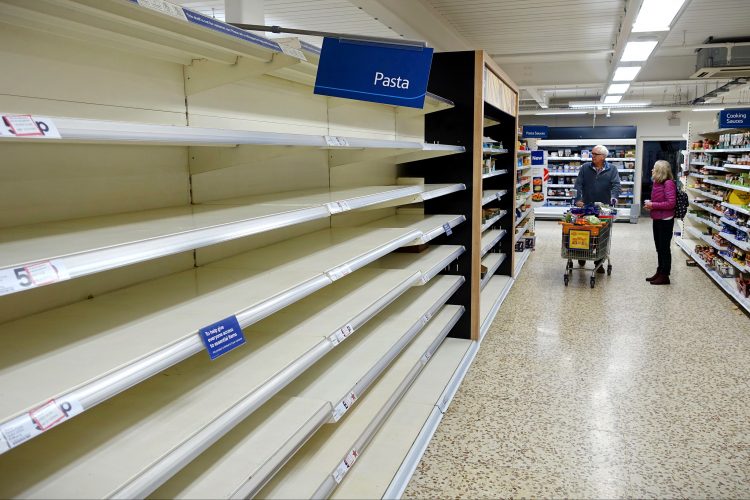In the face of a pandemic – FDF describes impacts and Federation’s response
- Like
- Digg
- Del
- Tumblr
- VKontakte
- Buffer
- Love This
- Odnoklassniki
- Meneame
- Blogger
- Amazon
- Yahoo Mail
- Gmail
- AOL
- Newsvine
- HackerNews
- Evernote
- MySpace
- Mail.ru
- Viadeo
- Line
- Comments
- Yummly
- SMS
- Viber
- Telegram
- Subscribe
- Skype
- Facebook Messenger
- Kakao
- LiveJournal
- Yammer
- Edgar
- Fintel
- Mix
- Instapaper
- Copy Link
Posted: 15 April 2020 | Nicki Hunt | No comments yet
FDF’s Director of Membership and Commercial Engagement and incident lead on COVID-19 describes the impact coronavirus has had on food and beverage manufacturers and how FDF has been managing and offering support during the crisis.


The COVID-19 outbreak has put many pressures on food and drink manufacturing, but it has also highlighted the extraordinary flexibility of the sector to face the biggest public health emergency in living memory.
The Food and Drink Federation (FDF) – the industry association for food and drink manufacturing – has always been at the forefront of helping its members through food safety incidents, however, a multi-strand incident of this nature is unprecedented.
We established our incident team early into the crisis, simultaneously moving FDF and FDF Scotland staff to remote working. By the time lockdown was announced, support for members was in full swing. Every day has seen FDF pivot into researching and supporting on a new significant issue around workforce, safety, international trade and business financial support.
Our long-standing working relationships with our lead department the Department for Environment, Food and Rural Affairs (DEFRA), as well as the Department for Business, Energy and Industrial Strategy (BEIS), the Department for International Trade (DIT) and the Scottish and Welsh Governments, enabled access to Ministers and senior civil servants at a regularity not enjoyed by many sectors. Daily calls with the decision-makers have been key to shifting the early barriers for members.
Employee absence
Lockdown and the spread of the virus brought with them pressure on members to maintain staffing levels. With shopper stockpiling already pressing many members into urgent and unprecedented levels of production, reduced staffing levels were an immediate threat. At the outset, a third of our members already felt they would struggle to cope with a production uplift between 11-25 percent. By week three of lockdown, manufacturers were experiencing staff absence averaging 20 percent. Furloughing created early confusion and as factory staff shortages became critical, we established partnerships with third-party labour providers to help ease workforce concerns.
Key workers
An early ‘win’ for FDF was the designation of food production workers as ‘key workers’. This enabled employees to access the limited childcare offered by schools. We also published a key worker letter template so that workers could demonstrate their essential roles when challenged by police, which many were in the early days. The key worker issue also exposed the differences of approach amongst the UK nations with Scotland devolving key worker childcare arrangements to local authorities.
Do you know someone who deserves recognition, that has gone above and beyond during the COVID-19 pandemic?
Then nominate them as a #NewFoodHero!


Hygiene and safety
With strict hygiene standards critical in food and drink production, there was understandably concern about the virus within the factory environment. Some older factory environments struggled more than others with implementing social distancing, but Public Health England (PHE) has just published guidance that confirms the pragmatic measures that many members had already implemented. During the process, FDF has engaged constructively with unions GMB and Unite around the shared goal of employee safety.
As public transport was cut back to skeleton services and many member employees too afraid to use it, the restrictions on car sharing due to social distancing and gathering were a particular pressure for many sites. Welcome guidance last week (6 April 2020) has advised a pragmatic approach.
While site and workforce issues are somewhat settling, business viability and international trade issues are surfacing as more countries move to lockdowns. The FDF has been tracking international trade issues and is in close contact with many embassies. We are currently working our smaller member companies to assist on ensuring they have access to business support services.
For more information, please visit: www.fdf.org.uk.
About the author
Nicki Hunt is FDF’s Director of Membership and Commercial Engagement. She is FDF’s incident lead on COVID-19 and has experience of emergency planning through previous roles. She has worked in communications and project management in local and central government and also the criminal justice sector. FDF and FDF Scotland represent more than 300 food and drink manufacturers as well as a large number of sector trade associations.
Related topics
Beverages, COVID-19, Recruitment & workforce, Trade & Economy
Related organisations
Department for Business, Department for Environment Food and Rural Affairs (Defra), Department for International Trade (DIT), Energy and Industrial Strategy (BEIS), Food and Drink Federation (FDF), GMB, Public Health England (PHE), UNITE








